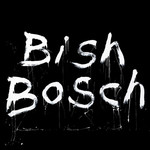
Bish Bosch
 $25.00
Out of Stock
$25.00
Out of Stock6+ weeks add to cart more by this artist
Scott Walker
Bish Bosch
[ 4AD / CD ]
Release Date: Friday 23 November 2012
This item is currently out of stock. It may take 6 or more weeks to obtain from when you place your order as this is a specialist product.
Bish Bosch is, according to Scott Walker, the final recording in the trilogy that began with 1995's Tilt and continued in 2006's The Drift. Its title combines urban slang for the word "bitch" and the last name of Dutch painter Hieronymus Bosch. Like its predecessors, Bish Bosch is not an easy listen initially. It's utterly strange, yet alluring. Musically, Walker is as rangy and cagey as ever. His players have worked with him since Tilt; they know exactly what he wants and how to get it. A string orchestra arranged and conducted by keyboardist Mark Warman, and a full symphony on three cuts are also employed. The lyrics on Bish Bosch are full of obscure historical, philosophical, medical, geographical and cultural allusions. For instance, subatomic science, a dwarf jester in Attila the Hun's court, St. Simeon, and an early 20th century fad all appear in "SDSS14+3B (Zircon, A Flagpole Sitter)." Elsewhere, Nicolai Ceausescu, Nikita Khrushchev, the Ku Klux Klan, and God himself show up. While Bish Bosch is another exercise in artful pretension, it is the most accessible entry in this trilogy and well worth the effort to get at it. Themes of decay are woven throughout these songs -- of empire, of the body, of language and religion -- yet they are often complemented and illustrated by wry, pun-like, and even scatological humor. Walker's pessismism is akin to Samuel Beckett's and like the author, he holds space for a sliver of hope. On "Corps de Blah," a chorus of farts answers an a cappella lullaby whose lyrics are grotesque. Before it's over, Walker reaches operatic heights vocally, singing about bodily functions, surgery ("Nothing clears out a room/like removing a brain"), speculative philosophy, and romantic betrayal, all while accompanied by thrumming, wailing strings, metallic guitar riffs, a flailing drum kit, and layers of electronics and ambience. "Epizootics!" uses a "tubax" -- part baritone sax, part tuba -- that introduces an infectious, fingerpopping drum chant before Walker employs bop-era vocal phrasing to climb to a careening crescendo before his version of a Hawaiian folk song closes it. "Tar's" power electronics shriek is brought to earth by a rhythmic strategy that involves machetes frantically clashing against one another. Despite its 21-plus-minute monolithic length, "SDSS14+13B (Zercon, A Flagpole Sitter)" is almost welcoming. Layered ambient and looped textures, bombastic rock dynamics, metal guitars, soundtrack effects, and Walker's theatrical baritone allow the listener inside the maelstrom of his soundworld. Here, as in many other places on Bish Bosch, traces, hints, and suggestions of melody are given small but pronounced spaces that momentarily relieve the listener's sense of dislocation and tension before building them up again. His voice too, is freer to float and engage something approaching lyricism. With Bish Bosch, Walker creates a kind of Möbius Strip: by virtue of creating a less physically demanding sonic landscape, he provides a way into his iconic trilogy on his way out of it.
4.5 / 5 All Music Guide.
Tracks:
1. See You Don't Bump His Head
2. Corps De Blah
3. Phrasing
4. SDSS1416+13B (Zercon, A Flagpole Sitter)
5. Epizootics!
6. Dimple
7. Tar
8. Pilgirm
9. Day Of The Conducator Dead